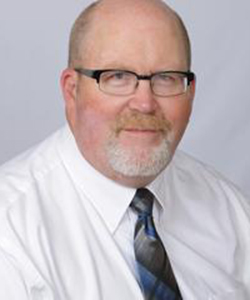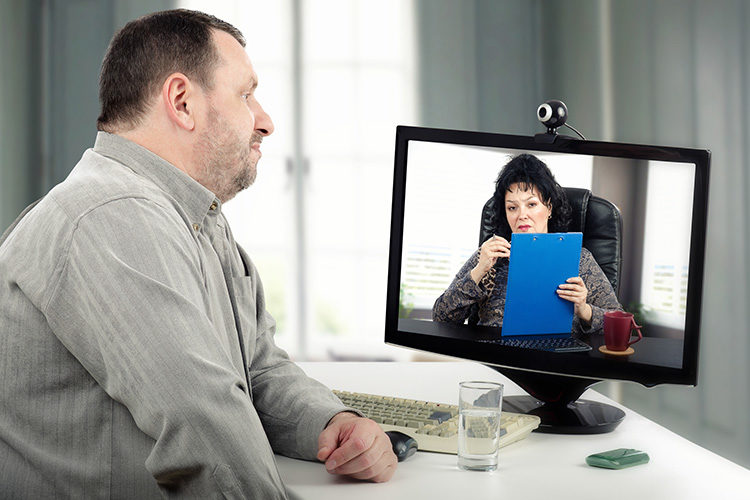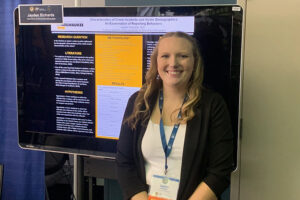Federal guidelines overseeing the availability of mental health services online have been loosened to give providers more flexibility to offer counseling during the COVID-19 pandemic.
Virtually all mental health clinics now offer telehealth services through video or over the phone, said W. Hobart Davies, professor and chair of the psychology department at UWM. It’s an important option for those seeking help at a time when most in-person counseling sessions cannot take place due to public health measures to limit the spread of the coronavirus.
“Services are just as available during this stressful time,” Davies said.

A poll by the American Psychiatric Association found that about 36% of Americans say coronavirus is having a serious impact on their mental health, while 59% say the disease is having a serious impact on their day-to-day lives.
A nationwide Gallup poll conducted from March 21 to April 5 found that 60% of Americans experienced “significant” stress, up from 46% last year. About 59% of Americans suffered from significant worries, up from 38% in that same span. Pollsters said it was unprecedented increase in the number of anxious Americans, a statistic that generally shows little change over time.
Some people are struggling with job loss. Many parents are juggling full-time jobs from home while overseeing their children’s education with schools shifting to online instruction. Social isolation has disrupted normal routines.
“Therapy can be helpful across this range of challenges,” said Davies, whose research focuses on child and adolescent psychology. “It can help structure daily routines and negotiate relationship rules, or just provide an outlet from the emotional intensity” of the crisis.
Typically, nearly 20% of Americans experience some type of mental illness each year. Of that group, less than half receive mental health care, said Shawn Cahill, an associate professor of psychology.

Depression and anxiety disorders are among the most common forms of mental illness.
Recent studies have found that the psychotherapy delivered by telehealth methods can be just as effective as in-person therapy sessions, Cahill said.
“Not everyone needs to begin mental health counseling to stay mentally healthy,” Cahill said. “But stigma associated with mental illness is one of the biggest barriers to people seeking and receiving mental health care when it is warranted.
“Don’t be embarrassed to seek help for yourself, and be supportive of others who are contemplating entering counseling,” Cahill added.
At UWM, University Counseling Services is offering telehealth counseling to students who already have established relationships with UWM counselors. They can be reached by phone for crisis situations during business hours, while people needing help after hours can reach any of the following local or national hotlines:
- Ascension Columbia-St. Mary’s Emergency Services (24/7) – 414-291-1200
- Milwaukee County Crisis Line (24/7) – 414-257-7222
- National Suicide Prevention Lifeline (24/7) – 1-800-273-TALK (8255)
(TTY Accessible – 1-800-799-4TTY)
- Trevor Lifeline for LGBTQ (24/7) – 866-488-7386
- Veterans Crisis Line (24/7) – 1-800-273-TALK, Press 1
- Crisis Text Line – text HELLO to 741-741 or visit: www.crisistextline.org
Other UWM resources:
- A new online portal called You@UWM connects students to resources promoting health, well-being, academic success and ways to reduce stress.
- A University Counseling Services tip sheet offers a checklist for recognizing distress and advice to maintain your mental health.








